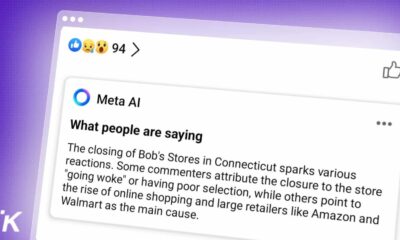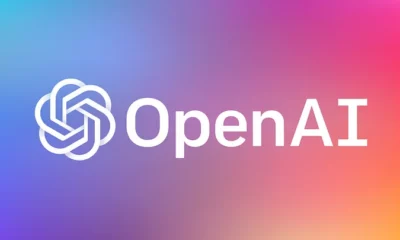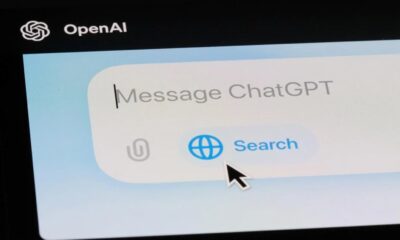AI
AI, Taylor Swift, and the ethical dilemma facing Elon Musk’s X
Today, it’s Taylor Swift on X. Tomorrow, it could be any of us featured in compromising, entirely AI-fabricated scenarios across the internet.

Just a heads up, if you buy something through our links, we may get a small share of the sale. It’s one of the ways we keep the lights on here. Click here for more.
Elon Musk’s platform, X (the artist formerly known as Twitter), found itself in hot water, thanks to an unexpected source: Taylor Swift.
Or, to be more precise, some not-safe-for-work images generated by AI that pretended to be her. These fake nudes spread like wildfire, pushing X to hit the panic button and temporarily block searches for the pop star’s name.
Here’s why it’s a big deal.
This opens a can of worms, but these worms know their way around a computer. It’s one thing to champion a platform dedicated to “free speech.”
However, when that speech includes creating and distributing explicit images of someone without their consent, we find ourselves navigating some seriously murky waters.
The internet has always resembled the wild west. Now, with AI in the mix, it’s as if every outlaw has a laser gun. The technology has become so advanced that distinguishing fact from fiction poses a real challenge.
This issue extends beyond Taylor Swift’s digital impersonation. It serves as a significant warning about privacy, consent, and the ethics surrounding AI.
The power of Swifties and the White House glance
Following significant backlash from Swift’s fans (never underestimate the power of Swifties) and a critical glance from the White House, X decided to take action. The platform removed the most viral posts and temporarily halted searches for Swift.

This marks one of the first significant moderation actions since Musk’s takeover. The company soon issued a statement proclaiming its zero tolerance against deep fakes.
Posting Non-Consensual Nudity (NCN) images is strictly prohibited on X and we have a zero-tolerance policy towards such content. Our teams are actively removing all identified images and taking appropriate actions against the accounts responsible for posting them. We’re closely…
Meanwhile, we’re talking about the same company that has no problem hosting pornogrpahy on its platform. What makes this situation so special is that Twitter has to step in and muzzle someone’s art.
Correct me if I’m wrong, but didn’t Musk himself champion his platform as the only beacon of free speech?

Microsoft CEO Satya Nadella weighed in on the unnerving saga. Speaking exclusively with NBC News‘ Lester Holt, Nadella didn’t mince words, describing the situation as “alarming and terrible.”
The images, which had been viewed more than 27 million times by Thursday, caused quite the stir. The account responsible for posting them was promptly suspended after a mass-reporting campaign led by Swift’s dedicated fans.
When asked about the incident, Nadella acknowledged the urgent need for action. “Yes, we have to act,” he stated emphatically. Highlighting the importance of a safe online environment for both content creators and consumers. Nadella added:
“I think we all benefit when the online world is a safe world. And so I don’t think anyone would want an online world that is completely not safe. So therefore, I think it behooves us to move fast on this.”
Nadella’s comments reinforce the growing concern over the misuse of AI technology, underscoring the critical need for quick and decisive action to protect digital safety and integrity.
A warning for us all
This issue isn’t exclusive to Swift or other celebrities; it’s a cautionary tale for everyone.
Today, it’s Taylor Swift on X. Tomorrow, it could be any of us featured in compromising, entirely fabricated scenarios across the internet. A chilling thought, indeed.
What’s our next move? First off, social platforms like X need to straighten out their approach to content moderation. Simply labeling everything under “free speech” doesn’t cut it anymore.
We’re facing a new breed of challenges with AI, necessitating significant tech and policy overhauls.
Moreover, enhancing our digital literacy is crucial, ensuring we’re not easily fooled by whatever appears in our feeds.
A wake-up call from the AI-generated Taylor Swift scandal
The controversy surrounding AI-generated images of Taylor Swift acts as an unexpected wake-up call. It highlights the dark side of technological advancements and the pressing need for tighter digital content controls.
But why are lawmakers and social media platforms suddenly taking action now? This has been an ongoing issue long before Taylor Swift experienced it.
As we venture deeper into this AI-infused future, let’s not leave our common sense and decency behind. After all, no one wants to inhabit a world where seeing is believing is no longer.
Have any thoughts on this? Drop us a line below in the comments, or carry the discussion to our Twitter or Facebook.
Editors’ Recommendations:
- Amazon Prime Video gets ads today
- Data privacy, like parenting, is a collective effort
- ChatGPT’s survival at stake in New York Times lawsuit
- AI deepfakes make their political debut with Biden robocall































